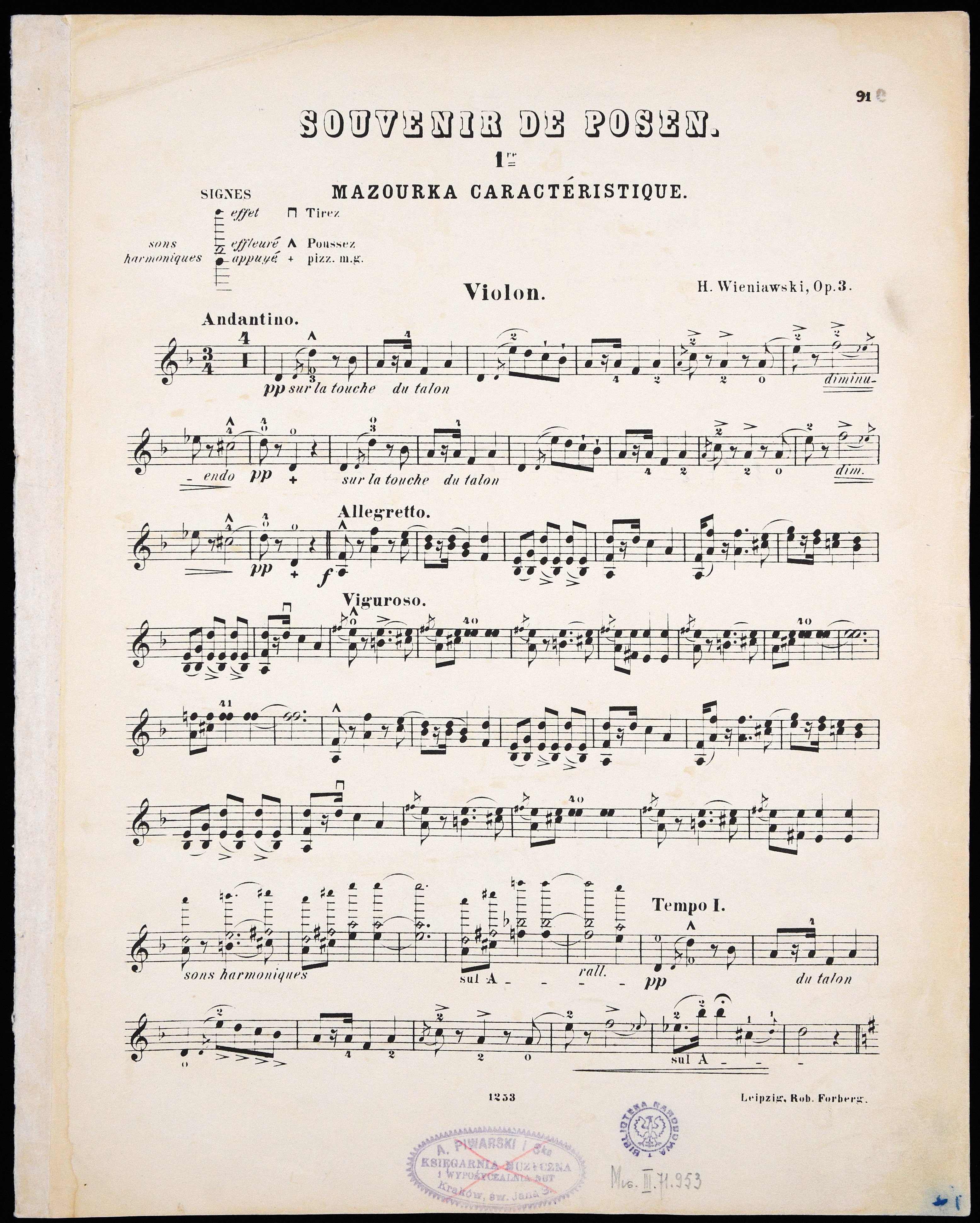Born on 10th July 1835 in Lublin. His father Tadeusz was a renowned surgeon, and his mother Regina née Wolff – an excellent amateur pianist. The Wieniawski house was Lublin’s main artistic salon, visited by eminent artists, where concerts, literary meetings and discussions took place. These experiences had a bearing not only on the future life of Henryk Wieniawski, but also on those of his two brothers: the elder Julian (pen-name Jordan) who became a writer and journalist, and the younger Józef, who pursued a pianist’s career. Henryk’s first teacher was his mother. He then studied violin with Jan Hornziel, violinist of the Grand Theatre in Warsaw, and Stanisław Serwaczyński, soloist and concert master in Budapest Opera. In 1843, at the age of eight, he left for Paris, where he studied with Lambert-Joseph Massart in Paris Conservatory. He graduated from the Conservatory as an 11-year-old boy in 1846 with 1st honours and a gold medal for his achievements. After the studies, he continued his classes with Massart for 2 more years; then for 2 months he gave concerts in Petersburg, the Baltic countries and Warsaw. In 1849, he returned to Paris Conservatory to study composition with Hipolit Collet, receiving an honours degree already in the following year.
In 1850 he started giving concerts with his brother Joseph, performing at first in all the major cities of the Tsar’s Russian Empire, then in many European countries, and enjoying an enthusiastic reception everywhere he travelled. Concerts with his brother came to an end in 1855. After many further successes (in Paris, Brussels, Dresden and London), in 1860 he accepted the post of first violinist (concert master) at the Tsar’s court and soloist of the Russian Music Society. Simultaneously he taught the violin in the Society’s music classes, which in 1862 were converted into a Conservatory. Several years of Wieniawski’s teaching activity in this Conservatory lay the foundation for the development of the Petersburg school of violinists, which Leopold Auer later made famous as the Russian school. Every year, for 3 or 4 months, he gave concerts in other European countries, mostly in fashionable health resorts.
He left Russia in 1872 after a 12-year stay and, with Antoni Rubinstein, he embarked on a grand tour of the United States, where the two artists gave 215 concerts in 8 months. Wieniawski remained in America till 1874, giving concerts with the famous singer Paulina Lucca. On his return to Europe in 1874, he started teaching in Brussels Conservatory as the successor of Henri Vieuxtemps, who had had to give up his post owing to an illness. Wieniawski taught there till September 1877 (one of his private pupils was Eugène Ysaÿe). As his heart condition was becoming more serious, and also because of his obesity, in the last years of his life he gave concerts sitting. He died on 31st March 1880 in Moscow, in the house of Nadyezda von Meck, and was buried in Warsaw, after a funeral which turned into a manifestation, and which was attended by 40 thousand people.
Since 1935 (with one intermission during the German occupation), the International Henryk Wieniawski Violin Competition has been held in Poland (in Warsaw in 1935, and since 1952 – in Poznań.
Dr Mieczysław Kominek
Kolejny artykuł:
Polish music in the early 20th century, Ignacy Jan PaderewskiThe previous article:
Stanisław Moniuszko


